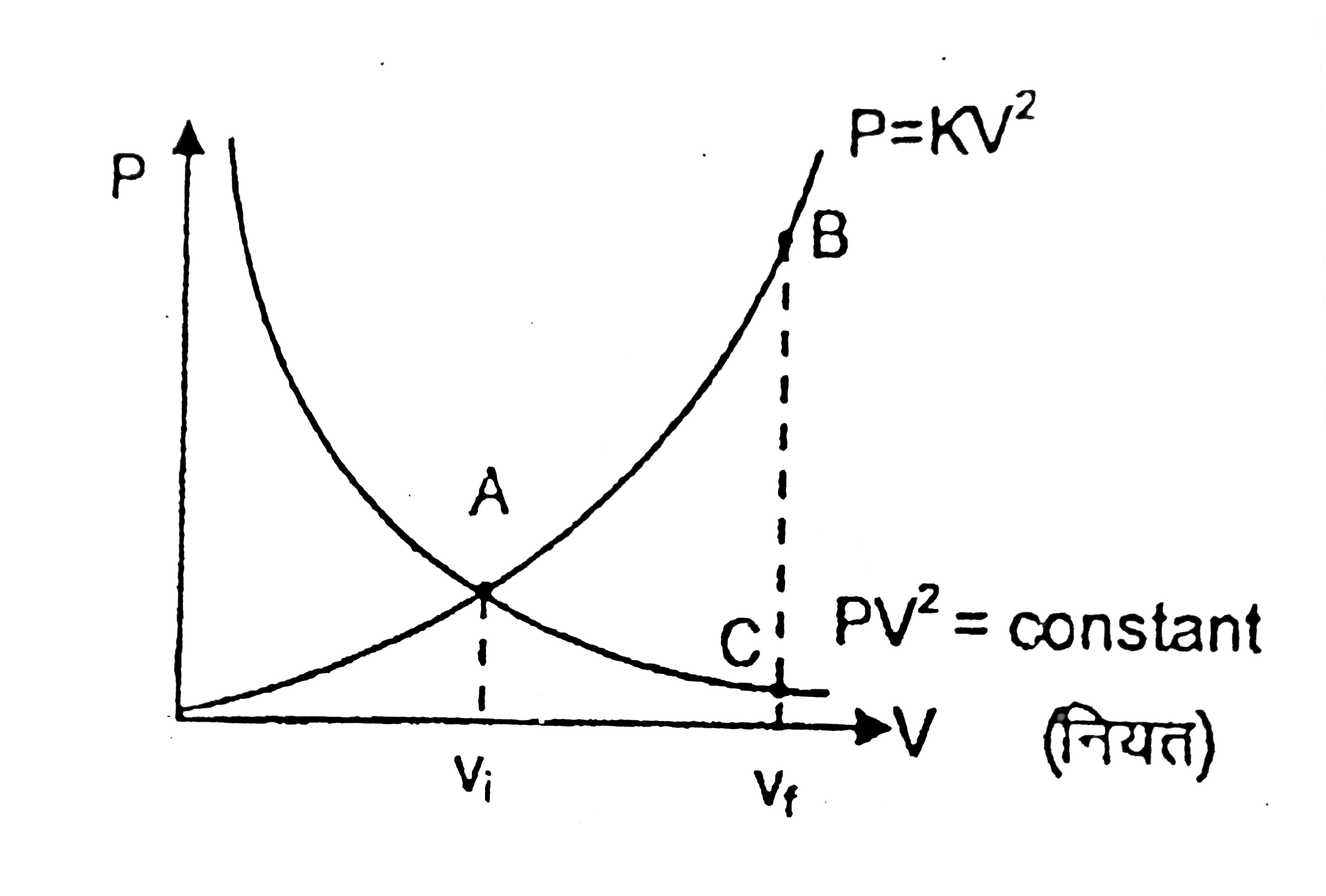An ideal gas can be expanded form an initial state to a certain volume through two different processes PV2= constant and (ii) P=KV2 where K is a positive constant. Then
The total heat given to the gas in (i) is greater than in (ii)
final temperature in (i) will be greater than in (ii)
final temperature in (ii) will be greater than in (i)
the total heat given to the gas in (ii) is greater than in (i)
The correct Answer is:B, D

from PV=nRT
As PC<PB and VC=VB=∵TB>TC
WAB>WAC,TB−TA>TC−TA
So by ist law Q=ΔU+W
Q=f2nRΔT+W
QAB>QAC
Topper's Solved these Questions
- TEST PAPERSBOOK - RESONANCECHAPTER - TEST PAPERSEXERCISE - PT-01
30 Videos
- TEST PAPERSBOOK - RESONANCECHAPTER - TEST PAPERSEXERCISE - Pt-02
30 Videos
- TEST PAPERSBOOK - RESONANCECHAPTER - TEST PAPERSEXERCISE - PART - II PHYSICS
107 Videos
- SIMPLE HARMONIC MOTION BOOK - RESONANCECHAPTER - SIMPLE HARMONIC MOTION EXERCISE - Advanced Level Problems
13 Videos
- TEST SERIESBOOK - RESONANCECHAPTER - TEST SERIESEXERCISE - PHYSICS
127 Videos
Similar Questions
Temperature of an ideal gas is 300 K . The final temperature of the gas when its volume changes from V to 2V in the process p=αV (here α is a positive constant) is
View SolutionAn ideal gas expands in such a manner that its pressure and volume can be related by equation PV2= constant. During this process, the gas is
View Solution
Knowledge Check
An ideal gas can be expanded from an initial state to a certain volume through two different processes,
(I) PV2=K and (II) P=KV2, where K is a positive constant. Then, choose the correct option from the following.AFinal temperature in (I) will be greater than in (II)BFinal temperature in (II) will be greater then in (I)CWork done by the gas in both the processes would be equalDTotal heat given to the gas in (I) is greater then in (II)An ideal gas expands in such a way that PV2=constant throughout the process.
AThe graph of the process of T -V diagram is a parabola.BThe graph of the process of T- V diagram is a straight line.CSuch an expansion is possible only with heating.DSuch an expansion is possible only with coolingAn ideal gas expands according to the law PV3/2=constant We conclude that
Athe adiabatic exponent of the gas k=1.5Bthe molar heat capacity C=CV−2RCtemperature increases during the processDsuch a gas is not feasible.
An ideal gas is expanded such that PT2=a constant. The coefficient of volume expansion of the gas is
View SolutionIn the process pV2= constant, if temperature of gas is increased, then
View SolutionTemperature of an ideal gas is 300 K. The change in temperature of the gas when its volume changes from V to 2V in the process p = aV (Here, a is a positive constant) is
View SolutionTemperature of an ideal gas is 300 K . The final temperature of the gas when its volume changes from V to 2V in the process p=αV (here α is a positive constant) is
View SolutionA diatomic gas undergoes same change of temperature by two different processes (i) at constant volume and (ii) at constant pressure. The heat supplied in the two cases will be in the ratio of
View Solution
